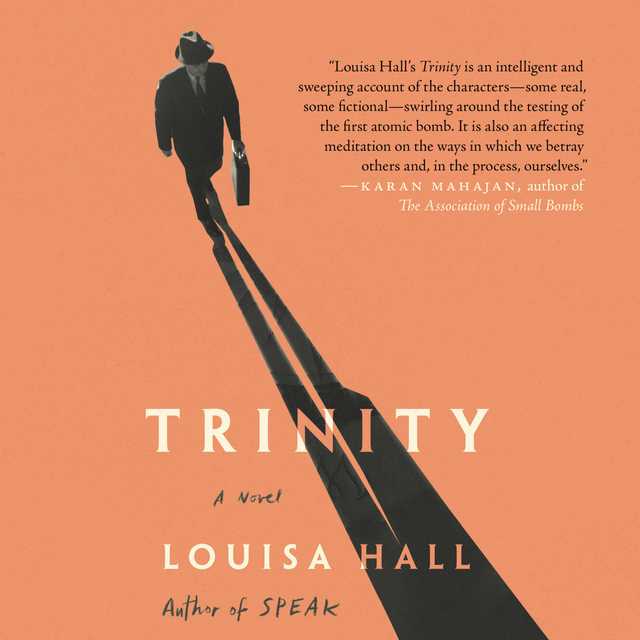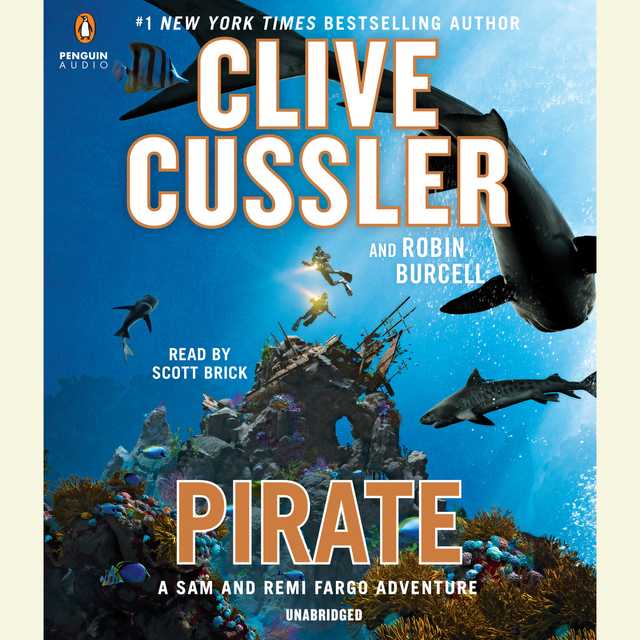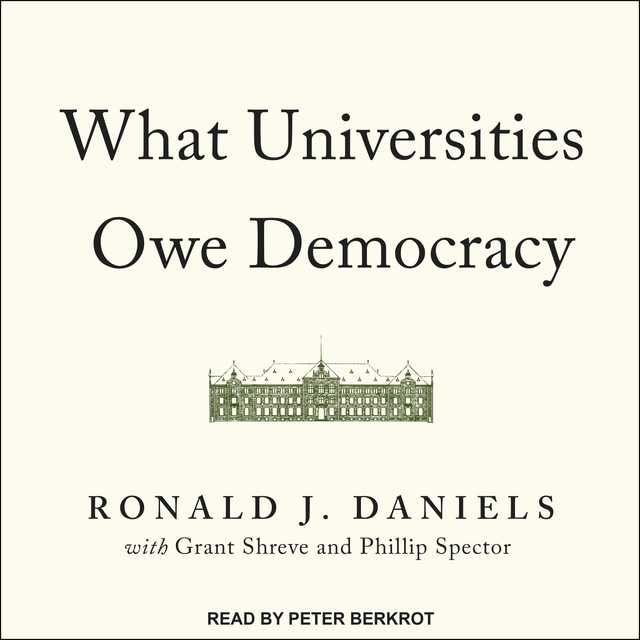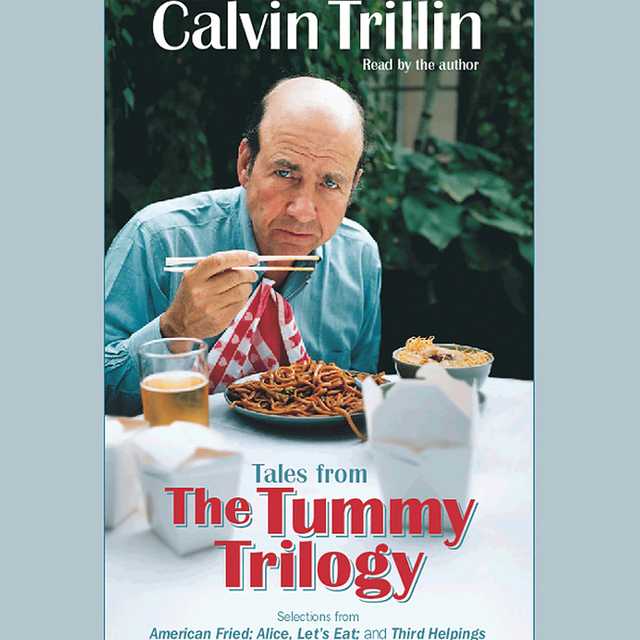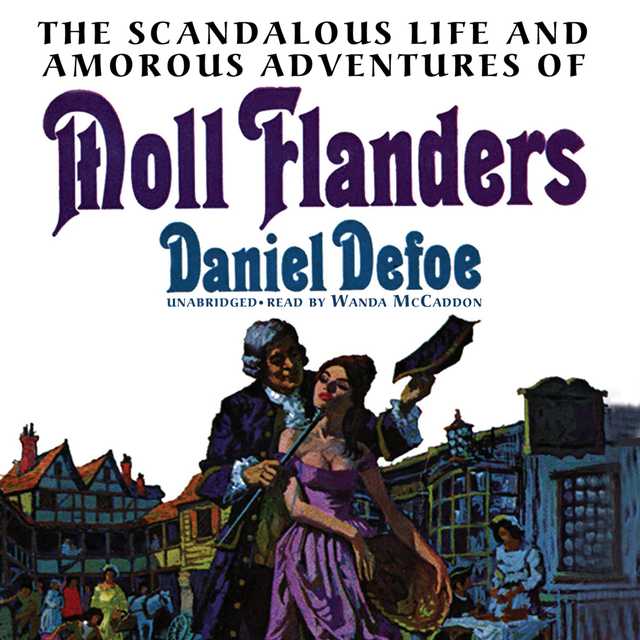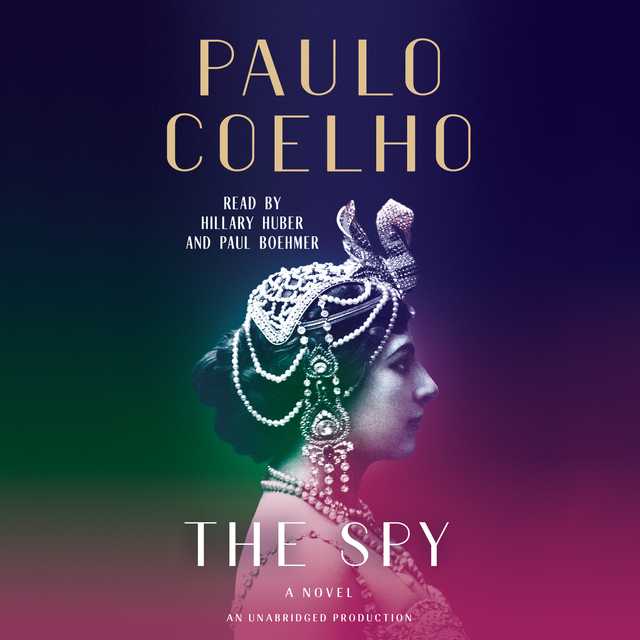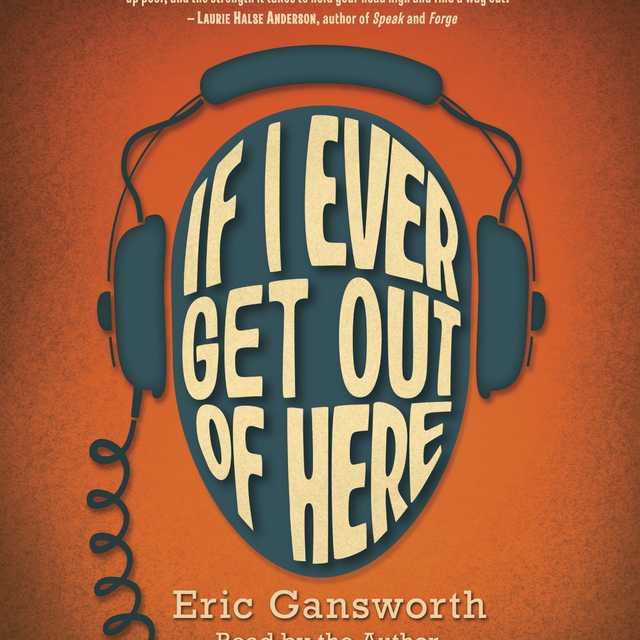Trinity Audiobook Summary
From the acclaimed author of Speak comes a kaleidoscopic novel about Robert Oppenheimer–father of the atomic bomb–as told by seven fictional characters.
J. Robert Oppenheimer was a brilliant scientist, a champion of liberal causes, and a complex and often contradictory character. He loyally protected his Communist friends, only to later betray them under questioning. He repeatedly lied about love affairs. And he defended the use of the atomic bomb he helped create, before ultimately lobbying against nuclear proliferation.
Through narratives that cross time and space, a set of characters bears witness to the life of Oppenheimer, from a secret service agent who tailed him in San Francisco, to the young lover of a colleague in Los Alamos, to a woman fleeing McCarthyism who knew him on St. John. As these men and women fall into the orbit of a brilliant but mercurial mind at work, all consider his complicated legacy while also uncovering deep and often unsettling truths about their own lives.
In this stunning, elliptical novel, Louisa Hall has crafted a breathtaking and explosive story about the ability of the human mind to believe what it wants, about public and private tragedy, and about power and guilt. Blending science with literature and fiction with biography, Trinity asks searing questions about what it means to truly know someone, and about the secrets we keep from the world and from ourselves.
Other Top Audiobooks
Trinity Audiobook Narrator
Cassandra Campbell is the narrator of Trinity audiobook that was written by Louisa Hall
Louisa Hall grew up in Philadelphia. She is the author of the novels Speak and The Carriage House, and her poems have been published in The New Republic, Southwest Review, and other journals. She is a professor at the University of Iowa, and the Western Writer in Residence at Montana State University.
About the Author(s) of Trinity
Louisa Hall is the author of Trinity
More From the Same
- Author : Louisa Hall
- The Carriage House
- Speak
- Reproduction
- Publisher : HarperAudio
- Abraham
- American Gods [TV Tie-In]
- Dead Ringer
- House of Sand and Fog
- Prey
Trinity Full Details
| Narrator | Cassandra Campbell |
| Length | 9 hours 9 minutes |
| Author | Louisa Hall |
| Category | |
| Publisher | HarperAudio |
| Release date | October 16, 2018 |
| ISBN | 9780062865373 |
Subjects
The publisher of the Trinity is HarperAudio. includes the following subjects: The BISAC Subject Code is Fiction, Historical
Additional info
The publisher of the Trinity is HarperAudio. The imprint is HarperAudio. It is supplied by HarperAudio. The ISBN-13 is 9780062865373.
Global Availability
This book is only available in the United States.
Goodreads Reviews
Jessica
May 07, 2018
When you start thinking about Oppenheimer, there is one big place your mind tends to go: how do you live the rest of your life after creating what may be the end of humanity? How do you live knowing all the people who have died because of your discovery? How do you separate the scientific search of knowledge from the human exploitation of that knowledge? In Louisa Hall's novel those questions are definitely there, but they're also secondary to smaller, more personal questions about causing harm to those you love most. In these interconnected stories, Oppenheimer is the central figure but the central thread is how we love, how we hurt those we love, and how we stop loving.If you're wondering what Oppenheimer has to do with that kind of question, it's answered for us quite early in the book. Oppenheimer cheated on his wife Kitty, and then years later had to answer questions about the affair in front of a congressional hearing while his wife sat in the crowd listening. The characters around Oppenheimer have their own romantic betrayals, both given and received. They consider their lovers and spouses and wonder if they can ever truly know them or if they themselves are really known. It took me a little while to get into this book. The first of the chapters had me a bit off kilter and I am not always patient enough to take the time to orient myself. But I read Hall's previous novel, SPEAK, which also used interconnected stories to explore big questions (in that book, questions of thought and consciousness and technology) so I kept coming back to it until it stuck and it was worth the effort. It didn't quite hit me in the gut the way SPEAK did, though the reasons are more structural than anything else, but as someone who has always approached Oppenheimer's work and the work of other scientists as a science person, I enjoyed changing my point of view. There's also a lot here on McCarthyism and suspicion, the limitations put on women in mid-century America, jealousy, and more. I appreciated how many of these stories were narrated by women, definitely not what you'd get from a male writer taking on a similar project, and was especially pleased that one section was focused on a queer couple. This is a thoughtful book that is not going to give you easy answers. It's going to make you work a bit, it's going to make you look for the connections and work to see the questions it's asking. But if you're willing to make the effort, it's worth it.
Jill
January 02, 2019
How should we think about Robert Oppenheimer, the father of the atomic bomb? Was he a thirsty seeker of knowledge, a scientist who believed it was one’s ultimate duty to discover what is unknown? Was he a betrayer of friends, his wife, his country, the man who unleashed the mighty power of the ultimate weapon of destruction?Louisa Hall suggests this: that “only in those moments between the slides of the kaleidoscope, those moments of a life that never crystallize into practiced anecdote or reliable knowledge” do we begin to feel “people pass through or, or over us and around us.” She invents seven characters who give testimonials about their own fledgling acquaintances with Oppenheimer – from an Army intelligence officer who tails Oppenheimer during his tryst with his lover Jean to a married Princeton secretary in the throes of an eating disorder to a betrayed journalist who is assigned to interview the scientist in his last dying days. But in circuitously talking about Oppenheimer, they inevitably end up telling their own tale, and the tale is a universal one: it is a tale of insecurity, secrets, the seeking of meaning. Each – including Oppenheimer – is pursued like Henry James’ mythical beast in the jungle, the as-yet-unknowable hunter. Robert Oppenheimer, Louisa Hall suggests, is part of us. We are all inadvertent liars and poor witnesses to history; for example, within the book, there are several versions of Oppenheimer’s affair with Jean Tatlock and similarly, many versions of what Oppenheimer’s inner life must have been like. But more dauntingly, we are all complicit with a program that killed 129,000 people when, according to most historians, the war had already been won – choosing later to accuse him of betrayal instead of a more horrific crime.The novel almost begs you, the reader, to examine your own beliefs about this flawed genius: did he create a weapon that ended World War II early or did he unleash Pandora’s box onto a once-innocent world? I have come to believe the latter, but each of us must decide on our own. This multi-layered and creatively-rendered novel provides fleeting glimpses – not deep dives – into Oppenheimer but its main goal is to use Oppenheimer as a mirror who reflects back to all of us.
Jill
January 02, 2019
How should we think about Robert Oppenheimer, the father of the atomic bomb? Was he a thirsty seeker of knowledge, a scientist who believed it was one’s ultimate duty to discover what is unknown? Was he a betrayer of friends, his wife, his country, the man who unleashed the mighty power of the ultimate weapon of destruction?Louisa Hall suggests this: that “only in those moments between the slides of the kaleidoscope, those moments of a life that never crystallize into practiced anecdote or reliable knowledge” do we begin to feel “people pass through or, or over us and around us.” She invents seven characters who give testimonials about their own fledgling acquaintances with Oppenheimer – from an Army intelligence officer who tails Oppenheimer during his tryst with his lover Jean to a married Princeton secretary in the throes of an eating disorder to a betrayed journalist who is assigned to interview the scientist in his last dying days. But in circuitously talking about Oppenheimer, they inevitably end up telling their own tale, and the tale is a universal one: it is a tale of insecurity, secrets, the seeking of meaning. Each – including Oppenheimer – is pursued like Henry James’ mythical beast in the jungle, the as-yet-unknowable hunter. Robert Oppenheimer, Louisa Hall suggests, is part of us. We are all inadvertent liars and poor witnesses to history; for example, within the book, there are several versions of Oppenheimer’s affair with Jean Tatlock and similarly, many versions of what Oppenheimer’s inner life must have been like. But more dauntingly, we are all complicit with a program that killed 129,000 people when, according to most historians, the war had already been won – choosing later to accuse him of betrayal instead of a more horrific crime.The novel almost begs you, the reader, to examine your own beliefs about this flawed genius: did he create a weapon that ended World War II early or did he unleash Pandora’s box onto a once-innocent world? I have come to believe the latter, but each of us must decide on our own. This multi-layered and creatively-rendered novel provides fleeting glimpses – not deep dives – into Oppenheimer but its main goal is to use Oppenheimer as a mirror who reflects back to all of us. 4.5 stars.
Conor
April 11, 2019
Well, well, well, this was a treat."Trinity" follows the personal life and later career of J. Robert Oppenheimer, so-called father of the atomic bomb and quoter of the Bhagavad Gita ("Now I am become Death, the destroyer of worlds"). It sketches a picture of him through the reactions of ten or so people, some of whom knew him well, others barely at all. Maybe it's because it takes place in the same heady time period as most of his oeuvre, but this book felt very influenced by Don DeLillo--the characters are all introspective, detached yet observant, somewhat unable to cope with the modern world they inhabit, unreconciled to the post-World Wars America, denuded of its galvanizing myths and thereby exposed as uglier than it thought itself. And, as with DeLillo, the good writing was beautiful, and the best narratives (I'm thinking the reporter and the anorexic, in this book)--gripping and unforgettable.
Jill
December 03, 2018
I had never of novelist Louisa Hall before I read her new book, "Trinity". Set in a range of places from Los Alamos to Princeton to San Francisco, the book tells the story - a story - about J Robert Oppenheim, developer of the atomic bomb. Hall does this by writing "short stories" as chapters, using narrators who often have a sketchy connection with Oppenheimer and his life. The reader soon realises that some of these narrators are less than reliable in the stories and interpretations they're giving.Who was J Robert Oppenheimer? I'd advise reading a Wiki entry on him to get the broad outlines of his life and accomplishments. Two years ago, I read a biography of Oppenheimer, "American Prometheus: The Triumph and Tragedy of J. Robert Oppenheimer", by Kai Bird. Bird's book is over 700 pages; Hall's book is about half the size. But Bird has written a straight biography, whereas Louisa Hall has written a novel - with fictional characters providing a lot of information. Is it truth or is it fantasy? Part and part? I read and enjoyed the book but still don't know how to describe it. Perhaps the best way to describe this book is to say it as much about the supplementary characters as it is about Oppenheimer.The other question is: does Louisa Hall have an agenda in writing her book? It's very clear that she is bitterly against the development and then dropping of the atomic bombs on Japan to end WW2. She - or her characters - blame Oppenheimer for the dropping of the bombs, yet those decisions were made by President Truman, his cabinet, and the US Army. If you want to blame Robert Oppenheimer for something, blame him for taking the job offered by the government to develop the bombs. Everything Hall writes about the damages done by the bombs concern the Japanese victims of Hiroshima and Nagasaki, who were continually affected by the radiation after the dropping of the two bombs. No where in her book, that I could find, did she write about the pluses of using the bombs - shortening the war and saving possibly millions of lives of Japanese who would have died defending the invasion of the home islands, as well as the hundreds of thousands of prisoners in China, Indo-China, and other Japanese war holdings who were treated miserably by their captors.(I do want to say that I lived in Santa Fe for eight years and traveled often "up the mountain" to see Los Alamos, as well as taken classes and heard speeches by scientists and historians who say we needed to drop the bombs. I am a life-long liberal who hates the ideas of the bombs, but have come to the conclusion they were needed. A short but superb work of non-fiction I can recommend is "Five Days in August" by Princeton professor of history, Michael Gordin" on the subject.)Okay, to return to Louisa Hall's novel, I can honestly say that I enjoyed it. She's an excellent writer and as long as you're not taking what she writes as gospel, "Trinity" is good reading.
Christopher
April 18, 2019
This novel opaquely recounts the life and career of J. Robert Oppenheimer, creator of the atomic bomb, through a series of first person vignettes involving people who knew him at different stages in his life. It’s an interesting approach, if not a wholly original one: Rashomon is the obvious comparison, though I’m more reminded of Howard Fast’s work, particularly Spartacus, where the protagonist is discussed, analyzed, idolized or demonized from the perspective of others without ever appearing directly. As a portrait of Oppenheimer I’m not sure that it works, as many of the chapters barely connect their protagonists to the man; the individual chapters, though, are often quite interesting: from a Secret Service agent stalking Oppenheimer around New Mexico looking for connections to Communists, to an assistant struggling with an eating disorder, a failed marriage and an unsuccessful writing career, a lesbian couple fleeing the Lavender/Red Scare to Europe, a progressive journalist eager to damn Oppenheimer for his role in Hiroshima, Nagasaki and the Cold War, the stories provide an interesting cross section of the postwar world: increasingly paranoid, distrusting and neurotic, patriotic heroes becoming gray-shaded villains, benign bureaucrats becoming enemies, science becoming destructive, women forced from wartime work into peacetime domesticity. On those levels, I enjoyed it; I’m just not sure why Hall chose Oppenheimer as a story hook.
Jan
December 04, 2019
Oppenheimer's guilt has been dealt with at length, but only a twenty-first century American woman could have created this very well written take on it.
Doctor
February 26, 2019
Robert Oppenheimer is a prime figure for both fictional and non-fictional interpretation. He stands personally at a sharp inflection point in twentieth century history, as the “father of the atomic bomb.” Oppenheimer is a kind of Faustian character. He took on leadership of an ambitious program in both physics and engineering, and he was triumphant. But his triumph was incomprehensibly tragic. The war had seen the development and use of terrible weapons of ever-increasing destructiveness and terror — rocket weapons, fire bombing, . . .. But the atomic bomb was where the curve jumped completely off the graph. The weapon that Oppenheimer “fathered” killed as many as 200,000 Japanese civilians and threw survivors into an unimaginable nightmare. And just for an encore, it initiated the arms race that menaced the second half of the twentieth century and continues with new players still.Of course Oppenheimer only led the development of the bomb. He didn’t decide to build it in the first place, and he didn’t decide to use it. But his role is an awful lot for one man to bear, and he was a man of sufficient conscience to feel the burden. What was it like to be that person?That is what drew me to Hall’s book — a novel, I thought, would give her the chance to explore Oppenheimer’s character freely. How did he take on the role? What were his thoughts, goals, misgivings? How did he deal with the “success” of the project? How did he deal with the legacy it brought him? And, of course, how did he deal with what happened later, when he became a target of the McCarthy hearings?The book doesn’t answer all those questions, but that’s probably not the point — I’m not sure Oppenheimer himself could answer them, and Hall doesn’t pretend to give us his private thoughts. She writes the book from the perspective of seven “testimonials” by fictional characters whose lives intersected in one way or another with Oppenheimer’s, at increasing ages in his life. These are not the well-known historical figures like his wife, his colleagues, etc. -- they are just people who happened to cross paths with Oppenheimer in ways that affected them.Oppenheimer comes out an intensely multidemensional figure, both to those fictional characters, as he seems to have been in fact. He was charismatic, accomplished, revered, obstinate, gregarious (in his own way), curious, . . . all those things. Maybe most importantly he was a man with a conscience. Some of the testimonials attest to those characteristics — you get to put the pieces together as you listen to each character tell their story. In some he’s scaled down to an ordinary guy, enjoying drinks with friends. In others he’s obviously carrying his own lifelong conflicts and his burden, bigger than life even to himself.I think it works. It works in the sense that it provokes you to think as empathically as you can about what it must have been like to be taken over by history, to embody all those conflicts between achievement, victory, guilt, and horror on a world stage. And to have all of that be the result of the choices you made yourself. Actually, one of the things I enjoyed about the book is that it is also as much about Hall’s fictional characters as it is about Oppenheimer. In some cases, it seems to take forever for them to get to Oppenheimer in the stories they tell. After all, as for the reader, how those characters come to understand (or not understand) Oppenheimer has as much to do with who they are and what they bring to the game as to do with Oppenheimer himself.At the end I still don’t know if I have a clear view of how Oppenheimer understood his own life. But maybe he didn’t have such a clear view himself.
Trina
March 02, 2019
I’m impressed by the author’s skill in crafting this work of fiction. It’s a collection of narratives, delivered in the form of testimonials, from those caught up in the orbit of the “father” of the atomic bomb, Robert Oppenheimer. The symbolic importance of the title Trinity extends not just to his marriage + suspicious love affair, but also to the holy faith he & other scientists in the Manhattan Project put into developing the A-bomb. Then there’s the triangular compact between writer-subject-reader, which comes into particular focus when the dying Oppenheimer is interviewed by a journalist of American-Japanese ancestry about his part in creating the bombs that ultimately fell on Hiroshima & Nagasaki. The testimonials consist of observations, from the PI who tails Oppie when he leaves Los Alamos without permission to visit a member of the Communist Party, to a fellow Berkeley grad student whom Oppie visits in Paris years later, to a lesbian couple living in exile on St John’s who live next door to the Oppenheimers at the height of the McCarthy era. It’s a fascinating portrait which emerges, dependent as it is on the reader’s impressions & knowledge to fill in the gaps in the picture. For instance, I can tell you as someone who grew up in Princeton, NJ & worked in the Math Dept at Princeton University & once discovered a letter in the filing cabinet signed by Robert Oppenheimer when he was at the Institute for Advanced Study, that his mystique permeates this age of nuclear proliferation to this day - and that the issues he wrestled with remain as complex & unsolved as ever. This novel provides no resolution, but it does contain revelations, some of which Oppenheimer himself experienced, some of which those surrounding him felt, and some of which the reader feels or shares as a result.
Mich
December 02, 2018
Trinity is the name J. Robert Oppenheimer gave to the test of the atom bomb at Los Alamos prior to its bombing of Hiroshima. The characters in this novel by Louisa Hall are both fictional and real. Hall uses seven characters in seven chapters to describe their recollections/testaments through interactions with Oppenheimer. Some of these interactions are so minor, they hardly add to the understanding of Oppenheimer and are more descriptive of the persons recounting their own lives. Other chapters provide more information about him.The book provides a fair amount of factual information about Oppenheimer that is already well-known and is not intended to provide more factual information. At times during my reading, I felt compelled to google actual events. For example, one of the chapters features Kitty (Oppenheimer’s wife) and “Chester”. It would have helped me if I could have known from the outset that this was his code-name since for several pages I had no idea who this was.Hall uses the fictional characters telling their stories to raise her own questions about Oppenheimer, the father of the atom bomb, and his motives regarding relations with other women, objections to the H-bomb tests, his membership in the Communist party, possible spying/support to Russia, the McCarthy hearings where he “gave up” colleagues, and his lies.Hall, who also writes poetry, uses her descriptive skills to soften some of what otherwise could have been a serious polemic and writes extremely well so that the book moves very rapidly. Her weaving together of external references, such as Crime and Punishment are masterful. She uses her own narrative skills to question her own thoughts about Oppenheimer as an enigma. The construction of the book as a fictional historical biography gives license to Hall to express her own thoughts about Oppenheimer. She does a great job.
Ridley
August 03, 2022
"To come to the realization that the very aim of understanding an individual...might be inherently impossible."I have to admit, this book was not at all what I expected. That is not to say however, that I did not enjoy it. On the contrary, I loved it. Louisa Hall's talent for poetic storytelling is truly wonderful, and the manner in which she builds a story of such intrigue and emotion around a subject so brutal is unavoidably and undeniably impressive.Hall poses philosophical and intrapersonal questions that shape her characters, as well as the overall narrative of the book - it is as if the characters are discovering and learning about themselves as each page progresses. Similarly to 'Speak', also by Louisa Hall, this story is told through a number of different accounts, each in their own setting and time period. They all feel important and necessary to the primary arc - and Hall does brilliantly to develop her character's and tell their unique stories, whilst managing to simultaneously develop Oppenheimer (the subject of the piece) and his narrative. "In Sanskrit, he said, the root for the verb to measure was the same as the root for illusion. The truth of this relation, he said, had been demonstrated by quantum theory. To measure any aspect of the world, he said, was to pull an individual unit apart from the whole flow of a system, a flow of which that individual unit was an integral part, and which defined that individual unit as integrally as its own characteristics."
Toni
October 13, 2018
I gave this book a 4 star rating for two unusual reasons. #1 - I learned a lot about Tobert Oppenheimer - not a go-to subject for me but the format of the story gave information without it being overwhelmingly just facts. #2 - The format the author used to present the story was unusual yet very enjoyable. The author presented seven fictional characters to tell the story of how they knew Robert Oppenheimer (father of the atomic bomb), the time frame that they knew him and insight into his life as well as enlightening aspects of the characters life. Each character gave a narrative; each chapter was a "testament" from each character. The fictional characters had interesting and philosophical events going on in their lives which added to the historical aspects in the life of Oppenheimer.Hall details the testing of the atomic bomb, of which Oppenheimer developed, the launch of the A bomb on Hiroshima and Nagasaki plus takes him through the years when he testified against friends during the McCarthy trials against the Communist Party.The last testament in the book was very philosophical in nature. Hall did a good summary and the story came full circle. A surprisingly likeable read for me!! (A Likely Story Bookstore ARC)
Thomas
August 12, 2019
A rippling use of the Rashomon multiple-witness technique, applied with a spirited enthusiasm and a magnetic touch. I always wanted to know more, see how developments next appeared to each different witness. Louisa Hall did this very well in "Speak," but the voices are stronger, tighter knit, more stitches per square inch, in "Trinity.""Trinity" also drew me in to the mystery of Robert Oppenheimer's personal-risk imagination. Hall has not much sympathy for melancholy and its associated gestures of personal vanity, but she has a deep empathy with for those suffering from tenacious puzzlement. For the need to keep digging, keep researching.By writing fiction, Hall gives herself scope for examining how it must feel to find out the secret project you were working on -- just "doing science" -- turns out, when all the pieces have been assembled, to be the most destructive compression of force mankind has ever unleashed. The voices she speaks through are extremely evocative.
Most Popular Audiobooks
Frequently asked questions
Listening to audiobooks not only easy, it is also very convenient. You can listen to audiobooks on almost every device. From your laptop to your smart phone or even a smart speaker like Apple HomePod or even Alexa. Here’s how you can get started listening to audiobooks.
- 1. Download your favorite audiobook app such as Speechify.
- 2. Sign up for an account.
- 3. Browse the library for the best audiobooks and select the first one for free
- 4. Download the audiobook file to your device
- 5. Open the Speechify audiobook app and select the audiobook you want to listen to.
- 6. Adjust the playback speed and other settings to your preference.
- 7. Press play and enjoy!
While you can listen to the bestsellers on almost any device, and preferences may vary, generally smart phones are offer the most convenience factor. You could be working out, grocery shopping, or even watching your dog in the dog park on a Saturday morning.
However, most audiobook apps work across multiple devices so you can pick up that riveting new Stephen King book you started at the dog park, back on your laptop when you get back home.
Speechify is one of the best apps for audiobooks. The pricing structure is the most competitive in the market and the app is easy to use. It features the best sellers and award winning authors. Listen to your favorite books or discover new ones and listen to real voice actors read to you. Getting started is easy, the first book is free.
Research showcasing the brain health benefits of reading on a regular basis is wide-ranging and undeniable. However, research comparing the benefits of reading vs listening is much more sparse. According to professor of psychology and author Dr. Kristen Willeumier, though, there is good reason to believe that the reading experience provided by audiobooks offers many of the same brain benefits as reading a physical book.
Audiobooks are recordings of books that are read aloud by a professional voice actor. The recordings are typically available for purchase and download in digital formats such as MP3, WMA, or AAC. They can also be streamed from online services like Speechify, Audible, AppleBooks, or Spotify.
You simply download the app onto your smart phone, create your account, and in Speechify, you can choose your first book, from our vast library of best-sellers and classics, to read for free.
Audiobooks, like real books can add up over time. Here’s where you can listen to audiobooks for free. Speechify let’s you read your first best seller for free. Apart from that, we have a vast selection of free audiobooks that you can enjoy. Get the same rich experience no matter if the book was free or not.
It depends. Yes, there are free audiobooks and paid audiobooks. Speechify offers a blend of both!
It varies. The easiest way depends on a few things. The app and service you use, which device, and platform. Speechify is the easiest way to listen to audiobooks. Downloading the app is quick. It is not a large app and does not eat up space on your iPhone or Android device.
Listening to audiobooks on your smart phone, with Speechify, is the easiest way to listen to audiobooks.

